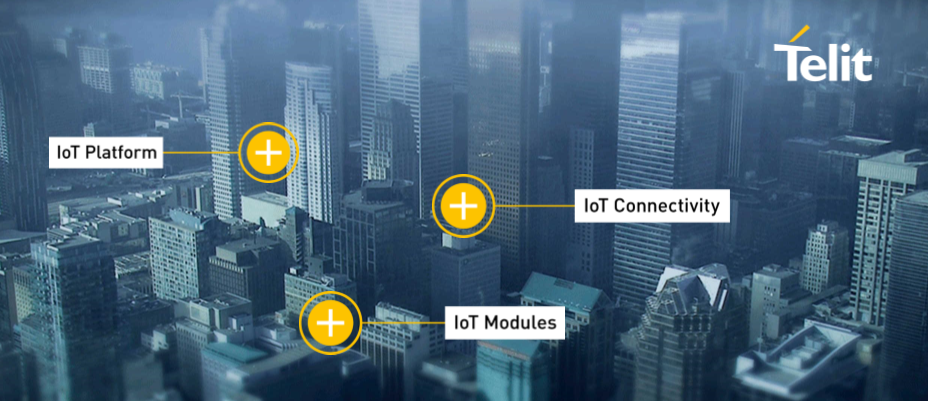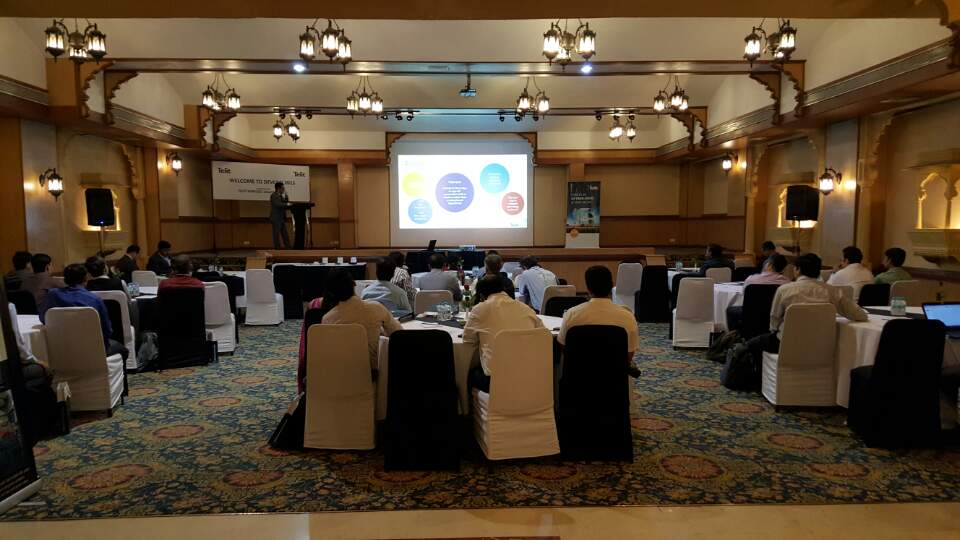Telit Communications PLC, a global enabler of Internet of Things (IoT) technology and value-added services has announced recently that it would be playing a leading role in tapping the untapped potential in the field of Automotive Telematics in India. As the leading IoT adopting vertical, transportation is reshaping itself with innovation, improvements and additional efficiencies brought about by connected vehicles, smarter fleets, rider experience-focused public transport and others. A greener, safer and friendlier world on the roads and in the vehicle will continue emerging from a whole new wave of solutions offered by Telit.

Presently Telit India focusses on 3 verticals, energy, automotive and PoS (point of sale, hand held terminals). Currently, the telematics division is contributing around 30 per cent of its overall business in India and is expected to account for 40-45 per cent in the coming years. Initially, it was garnering orders solely from the aftermarket but now the growth is also coming from OEMs.
Telit is one of the unique companies in the industry which has a stack of modules both in the 2G and 3G cellular space and this is also a unique point of differentiation as compared to competition.
“For the automotive Industry, we offer Telematics Solutions for both Public Vehicle(PV) and Commercial Vehicles(CV) segments such as in-vehicle navigation system, vehicle tracking system. In CVs, vehicle tracking systems have been installed for trucks and buses for Fleet Management Solutions (FMS) and logistics providers. We are also working with the government to understand their challenges and roadmaps in terms of telematics adoption in the CV space” says Mr. Ashish Gulati, Country Manager.
All telematics devices, for example, for navigation, stolen vehicle recovery, infotainment systems, electronic toll systems and vehicle diagnostics are part of the transportation segment. This segment also includes transport systems which provide passenger information, report availability of parking spaces or areas of congestion in a city, tolls, parking and other charging systems particularly in cities. All these benefits are crucial for the customers and the auto companies in the growing Indian market.
“Going forward, we will be adding another product solution called On-Board Diagnostics (OBD) in India. Modern OBD implementations use a standardized digital communications port to provide real-time data in addition to a standardized series of diagnostic trouble codes (DTCs), which allow one to rapidly identify and remedy malfunctions within the vehicle. With the inclusion of Automotive Telematics Onbaord Unit Platform (ATOP) modules, we have already strengthened our business in this domain and we are looking forward to introducing this solution in the Indian market” stated Mr. Gulati.
Telit has telematics modules mainly for tracking devices for vehicles and a separate module meant for on-board diagnostic units (OBD). “Going forward, we are looking towards more implementation of OBD devices, something which is not really happening in India but it can bring in a lot of value to automotive companies and its customers. Some companies have shown interest in implementing OBDs in their vehicles at a smaller scale and are testing this solution” he says.
According to Mr. Kyungjun Lee, Sr. Director Marketing APAC, “The applications of Internet of Things (IoT) in various fields have brought innumerable benefits and minimal cost and high efficiency. For our customers, our cloud platform allows them to quickly develop their own applications. With our cloud-based services including part of the security, connectivity, etc. customers can focus on their applications, rapid development and speed time to market, and achieve cost reductions. In automotive section we have a good number of customers globally. We have number of modules which cover different technologies in our space. India has a vast and a fast growing market for IoT and many companies are betting on this technology. Our sales are growing in China and we see a lot of potential in India to catch up and compete globally. India has a lot of potential in telematics and telematics is big in India especially in the automotive sector.”
Smart City Development
Mobility and IoT technologies would play a crucial role in the development of Smart Cities. Mr.Gulati added “ Indian Government’s plan to develop smart cities and deploy information and communication technologies for efficient use of resources resulting in cost and energy savings, improved quality of life, and reduced environmental footprint IoT technologies will play a vital role in realising this vision of the government. IoT technologies would also play a key role in enhancing the delivery of healthcare and education services in the Smart Cities. Smart cities in turn, will also ensure that Internet of Things (IoT) becomes a reality in India, making everyday objects readable, recognisable, locatable, addressable and controllable via the internet.
Internet of Things also has a huge impact in the industrial sector. For example, smart meters have the ability to connect to some mechanisms using cellular modems or power line carrier communication that provides the ability to use the power line itself to communicate the information. If we consider the area of energy or smart grids that employ a usage model which can leverage a combination of technologies related to cellular type of connectivity for better communication. From a connectivity and technology perspective, it will definitely be a combination of existing technologies with IoT because the amount of information that needs to be sent over the network would be much more relevant depending on the industry. IoT has a major impact in areas such as telecom, transportation and housing industry, but energy and health are the two areas that require attention with respect to implementation of Internet of Things.


